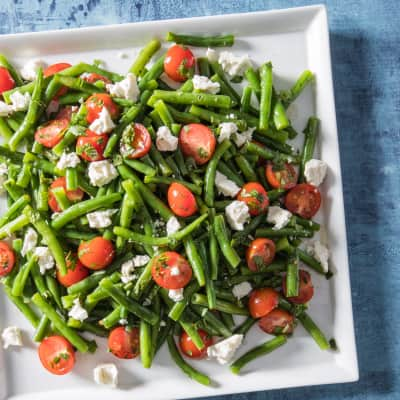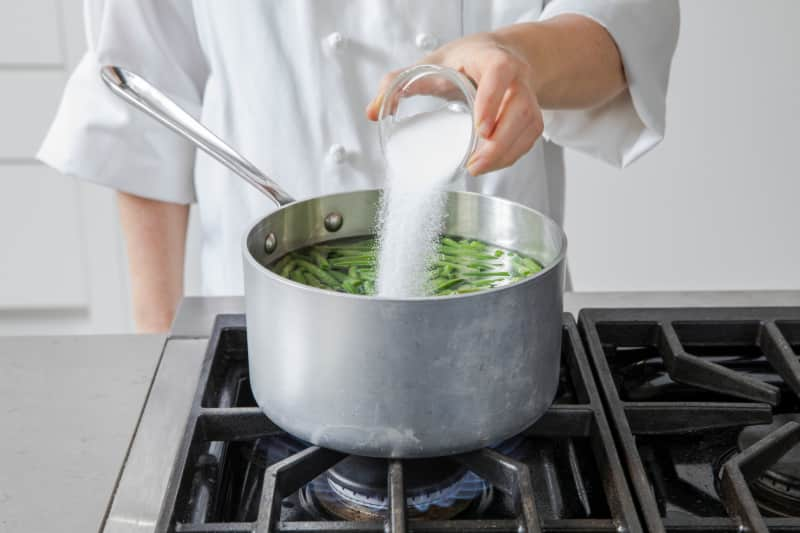My Goals and Discoveries
Blanched green beans that are tender and still bright green
Using a high concentration of salt in the blanching water (2 tablespoons per quart of water) allows the green beans to tenderize rapidly, so their bright green color is preserved.
Green beans that taste meaty and green-beany
The large amount of salt in the blanching water penetrates the beans’ sturdy skins to season them more fully than smaller amounts would.
Salads that allow the flavor of the beans to shine
Keeping the flavors of the salad simple and not overly intense means that the beans’ delicate flavor remains prominent.









